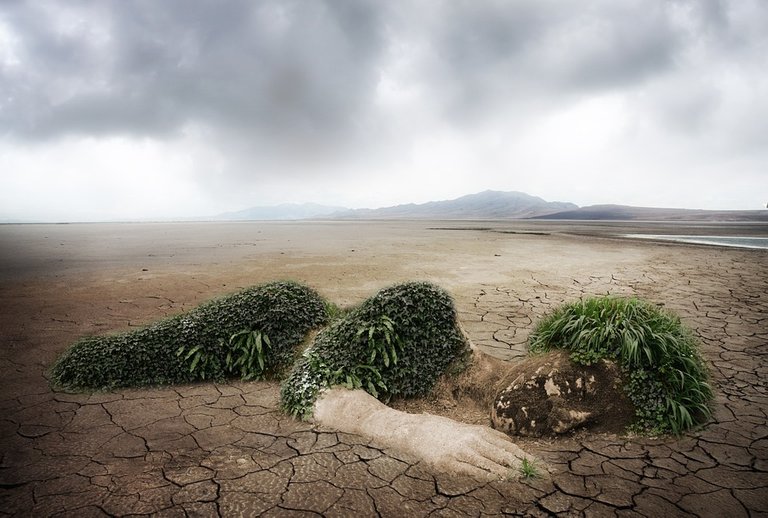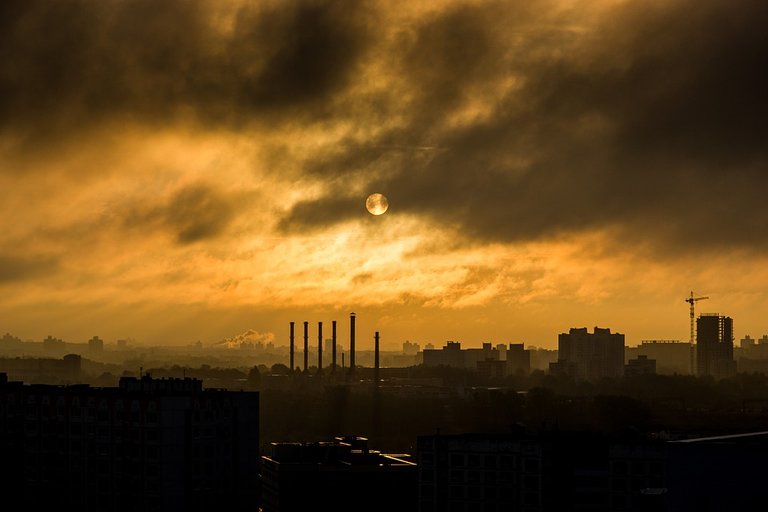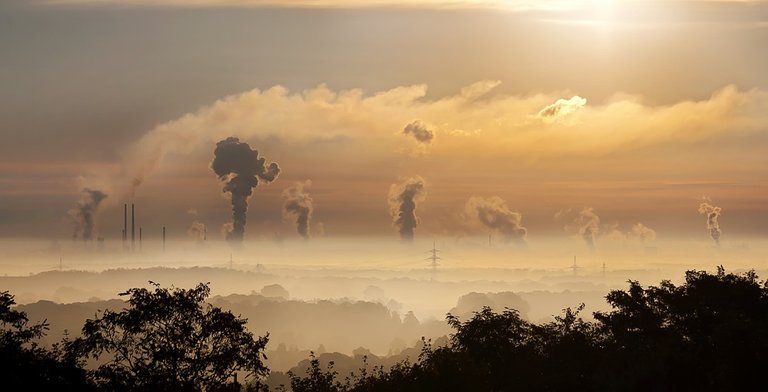University College London described climate change as the “biggest global health threat of 21st century”
OUTLINE
- Introduction
- How climate is changing
- The Anthropogenic (med made) causes of climate change
- How climate change is affecting our health directly and indirectly
- Tackling climate change will represent health opportunities
- Conclusion

Introduction
In the modern World, countering climate change is the greatest challenge for the planet itself, Lancet Commission on Health and Climate Change report 2015 along with the University College London described climate change as the “biggest global health threat of 21st century”.So, what is the real answer to the question “how does action on climate change represent a huge health opportunity” is?If we are taking an action on climate change right now, it will stop or decrease the level of Asthma, more virulent allergens, skin problems caused by strong heat waves, lung problems caused by added aerosols in the atmosphere, severe other skin and stomach problems caused by indirect effects of acid rain when we eat the affected fishes or use that water, water and vector-borne diseases like:
- Malaria
- Cholera
- Diarrhea
- Lead poisoning
- Amoebiasis
- Dysentery etc.
This is just the tip of an iceberg, taking positive action on climate can compete change the anatomy of diseases which means less utilization of money on health care hence savings and economical sound.Let’s discuss this climate change situation worldwide and what our health care problems associated with it.
How the climate is changing?

We all know that climate is changing with a rapid increase in global temperature (Global warming) and the associated effects like flooding, glacier melting etc. but what is scientific evidence of such change?There are 9 scientific pieces of pieces of evidence of climate change according to NASA global climate change:
A rise in the global temperature
The average surface temperature of the Earth has risen about 0.9 degree Celsius since the 19th century.
Ice sheets are shrinking:
According to NASA global climate change: “The Greenland and Antarctic ice sheets have decreased in mass.”
The glacier retreat:
Glaciers are moving everywhere around the world like the Alps, Himalia due to the temperature difference.
A considerable decrease in the snow cover:
NASA satellite photos discovered that snow cover in the Northern Hemisphere has decreased over the past five decades.
Seas levels are rising:
In the last century, sea levels rose around 8 inches and that figure has doubled in the last two decades.
The decline of Arctic sea ice:
The thickness, as well as the extent of the Arctic sea ice, has declined considerably over the last several decades.
The extreme events:
In the U.S the number of high-temperature results has increased as compared to several low-temperature events which have decreased since 1950.
Rapid acidification of Ocean:
The acidity of oceans has increased over several decades which is alarming. According to the NASA global climate change:
“Since the beginning of the Industrial Revolution, the acidity of surface ocean waters has increased by about 30 percent. This increase is the result of humans emitting more carbon dioxide into the atmosphere and hence more being absorbed into the oceans. The amount of carbon dioxide absorbed by the upper layer of the oceans is increasing by about 2 billion tons per year”. (NASA GLOBAL CLIMATE CHANGE)
The continuous warmth in Oceans:
The top 700m of the oceans have suffered from the most absorption of the unprotected heat and radiations from the sun, the oceans have warmed more than 0.4 degree Celsius since 1969.
The Anthropogenic (med made) causes of climate change:

Climate change (Global warming) is the direct product of “Greenhouse Effect”, the greenhouse effect is a phenomenon in which greenhouse gases (C02, Methane, H20, N20) trap the outgoing sun rays (sunlight hits the Earth’s surface, some of them are absorbed and rest reflect back in to the atmosphere) and warm the atmosphere of the Earth hence Global warming (increased temperature of the Earth).Fossil fuels are the primary fuel sources since the old ages, and we are now facing the symptoms and indirect effects of such brutal burning in the shape of climate change (Global warming). Fossil fuels burning release C02 along with other deadly gases, C02 is the most dangerous gas if it is in excess, it the primary greenhouse gas. Farming is another major contributor to the greenhouse effect because keeping animals in place releases methane in a bulk.According to the WWF (World Wildlife Fund):
Animals, livestock like sheep and cattle, produce methane, a greenhouse gas. When livestock grazed at a large scale, as in Australia, the amount of methane produced is a big contributor to global warming. Some that farmers use also release nitrous oxide, which is another greenhouse gas. Australian farming contributes 16% of our total greenhouse gas emissions. Using different and different stock feeds can help to reduce farming's contribution to climate change. (WWF: Causes of Global Warming)
How climate change is affecting our health directly and indirectly:
It may look silly to think how climate change and personal health are interlinked but researchers told us over the years that climate change is, directly and indirectly, affecting our health and if we take an action on climate change, health opportunities may come to the surface.According to Peter Grinspoon, MD, contributing editor of Harvard Health Publishing of the Harvard Medical School:
At first glance, climate change and personal health may not seem related. One is a global political and environmental concern, while the other deals ultimately with an individual’s well-being. However, climate change is already directly affecting human health in many parts of our world, including many areas of the United States. We are just beginning to understand, and to witness, the health effects of climate change. (Grinspoon)
Climate change can trigger extreme events which can directly affect human health like floods, it is a very serious situation, flooding can force people to become homeless; dislocation, drowning deaths, skin diseases, infectious diseases, poverty, mental traumas, physical traumas etc.
We can take the example of “2010 floods in Pakistan”. According to Pakistan Insider:
The 2010 Pakistan floods began in late July 2010, resulting from heavy monsoon rains in the Khyber Pakhtunkhwa, Sindh, Punjab, and Baluchistan regions of Pakistan and affected the Indus River basin. (Anastasia)
Not only this, infectious and airborne diseases spread like wildfire, thousands of people died due to these diseases, many suffer till today.Hurricane Katrina is the second example, local health resources were overly taxed and compromised on a large scale along with the hundreds of deaths, injuries, infectious and airborne diseases made New Orleans their stronghold. According to Peter Grinspoon, MD, contributing editor of Harvard Health Publishing of the Harvard Medical School:
“Droughts can cripple farming and food production, which leads to poverty, malnutrition, and starvation. As a result, we are seeing more environmental refugees” (Grinspoon).
The impacts on ecosystem affect our health indirectly, through agricultural losses and spreading of diseases, quick evaporation of water due to intense heat, eating sick fishes affected by acid rain and water pollution (oil spillage into the rivers, thermal discharge, and plastic substances).
The most affect country is Australia, heat waves in Australia are longer and more frequent.
People die from heat exposure in the summers, many seek health care like massive surgeries, ambulances, medicines, and emergency services. The death rate in Australia due to heat waves are expected to be double in the next 40 years.
Tackling climate change will represent the following health opportunities
Almost all the reputable scientists and Environmentalists of the World agree that we need to tackle climate change for better health care. 197 countries signed the Paris agreement which is a PACT between United Nations Framework Convention on Climate Change (UNFCCC).This Pact solely focuses on the reduction of greenhouse gases and to provide financial assistance to developing countries to change the climate and improve health care Worldwide. It will start in 2020. This pact is made to resist the rise in temperature.
Reducing carbon footprints directly benefits our health:
If we use public transport instead of individual rides, prefer walk over vehicles, it will conserve fossil fuels which means less smoke in that area and fewer aerosols which will directly affect our health in terms of better breathable air, less Asthma problems, fewer lung diseases, less bad odor, our physical health will be improved and it will benefit those who have skin irritation problem which is caused by the smoke and aerosols in the air.
Renewable energy will produce less air pollution and fewer diseases
Renewable energy (solar, wind, hydro, tidal, geothermal) is free from any carbon emissions or other air pollution which will lead to less Asthma and Lung cancer, less photochemical smog and acid precipitation which is the cause of mold melting of ancient monuments and destroy agricultural crops. It will benefit the overall economy and it will improve self-dependency by producing independent power and it will ultimately lead to more jobs in the market in the solar and wind industry (less poverty). Lyme disease spreads to people through tick bites which become stronger in the warmer climate, positive climate change may stop it.
Lyme disease attacks in the US has doubled since 1991, from about 4 cases per 100,000 people to 8 cases.
About 30,000 people are getting sick each year. According to the Environmental protection agency, ticks thrive on warmer climate and they feed on new hosts in the warmer areas and most part of the World is warming up each year due to Global warming. In most part of the US, climate change is aiding the disease two-fold: helping ticks to grow even more. Keeping the ecosystem clean and planting more trees will surely help in the greater cause, people are advised by the US government to keep their homes clean, make sure to dump their waste into the garbage, plant more greens into their backyard.
Methods/Preventative measures to improve health and mental state by improving climate
Climate change has severally affected human health (mentally and physically) economy and livelihood. here are some common techniques to improve climate starting from our homes to improve and overall health:Reduce car emissions, early warning system for vector-borne diseases, improved early warnings for extreme events, reduce expenditure in your homes, reduce your carbon footprints when you shop, recycle waste, use renewable energy or recycles biogas, buy energy efficient appliances and electric cars if possible, install rainwater tanks, create social awareness of global warming, ocean pollution, disaster management, clean water, Earth day and health benefits of a clean environment.
Wake-up call for health care institutes (hospitals):

Hospitals need to focus on the preparedness to prevent being victims, moving critical equipment’s like generators on the roof, open window operation theaters for the natural ventilation, conserve hospital bills by using minimum fossil fuels; the less energy hospital requires, the longer they can operate. Alternative power sources independent from the electrical grid must be installed. Education and advocacy around climate change policy as it impacts public health, increasing the health system’s “surge” capacity. Same measures are advised for other commercial industrial firms for a better environment and health.
Conclusion
Climate change and human health are two sides of the same coin, it is not possible to have a healthy body on an unhealthy planet. Over the last century, the climate has changed drastically, and it has cursed our planet in the shape of Global warming; flooding, glacier melting, extreme temperatures, bad air, added aerosols in the atmosphere, water pollution, air pollution, and other environmental illnesses. Humans are the main contributor to this historic climate changes and we are solely to blame.
On the one hand, we are polluting our planet and on the other, we are the solution.
It is no secret that acting on climate change will create multiple health opportunities. We should reduce our carbon footprints, reduce the use of fossil fuels, use renewable energy like solar and wind in windy areas to lift off the load from electrical grids (fossil fuel powered), lower the alcohol intake, plant 3 trees if we are cutting one, use the latest electrical cars (TESLA) instead of old gasoline vehicles, voluntarily clean the bleaches and save aquatic life. All these positive changes in climate will ultimately save our lives will create multiple employment opportunities and will spread a positive aura around the globe.
Works Cited
Armstrong, Fiona. “Climate Mitigation – the Greatest Public Health Opportunity of Our Time.” The Conversation, The Conversation, 11 Oct. 2018, Web, 16 Feb. 2019 <theconversation.com/climate-mitigation-the-greatest-public-health-opportunity-of-our-time-43549>.
“WWF - Causes of Global Warming.” Wildlife & Environmental Conservation Organization - WWF - WWF-Australia, Web, 16 Feb. 2019 <www.wwf.org.au/what-we-do/climate/causes-of-global-warming>.
“Scientific Consensus: Earth's Climate Is Warming.” NASA, NASA, 12 Feb. 2019, Web, 16 Feb. 2019, <climate.nasa.gov/scientific-consensus/>.
Forum, Skoll World. “What Does Climate Change Have to Do with Health Care?” Forbes, Forbes Magazine, 7 Apr. 2013, Web, 16 Feb. 2019, <www.forbes.com/sites/skollworldforum/2013/04/07/what-does-climate-change-have-to-do-with-health-care/#52c83e7f7915>
“Climate Change: a Threat and an Opportunity for Water and Sanitation.” WASH Matters, wash matters, 10 Nov. 2016, Web, 16 FEB. 2019, <wateraid.org/blog/climate-change-a-threat-and-an-opportunity-for-water-and-sanitation>.
Grinspoon, Peter. “Our Planet, Ourselves: Climate Change and Health.” Harvard Health Blog, Harvard Health Publishing, 29 Nov. 2017, Web, 16 Feb. 2019, <www.health.harvard.edu/blog/planet-climate-change-health-2017032911481>.
“Floodplain Management Solution to Devastating Flood Losses.” Mitigating the Water Shortage in Karachi, WWF, 15 Feb. 2012, Web, 16 Feb. 2019, <www.wwfpak.org/floodinpakistan/index.php>.
Lauren, Carlson. “What Is the Paris Agreement and Why Is It Important ...” Population Education, Population Education, 2 Dec. 2016, Web, 16 Feb. 2019, <populationeducation.org/what-paris-agreement-and-why-it-important/>.
Department of Health & Human Services. “Climate Change - What You Can Do.” Better Health Channel, Department of Health & Human Services, 31 Aug. 2011, Web, 16 Feb. 2019, <www.betterhealth.vic.gov.au/health/HealthyLiving/climate-change-what-you-can-do>.
Belluz, Julia. “How Climate Change Helped Lyme Disease Invade America.” Vox.com, Vox Media, 15 June 2018, Web, 16 February 2019, Web, <www.vox.com/science-and-health/2017/6/6/15728498/lyme-disease-symptoms-rash-ticks-global-warming>.
Walsh, Dylan. “The Budding Health Care Costs of Climate Change.” The New York Times, The New York Times, 10 Dec. 2012, Web, 16 February 2019, <green.blogs.nytimes.com/2012/12/10/the-budding-health-care-costs-of-climate-change/>
Valleron, Alain-Jacques., et al. “Death Toll Exceeded 70,000 in Europe during the Summer of 2003.” NeuroImage, Academic Press, 2 Feb. 2008, Web, 16 Feb. 2019, <www.sciencedirect.com/science/article/pii/S1631069107003770>.
Hanigan, Ivan C., et al. “Suicide and Drought in New South Wales, Australia, 1970–2007.” PNAS, National Academy of Sciences, 28 Aug. 2012, Web, 16 February 2019, <www.pnas.org/content/109/35/13950>.
“Asthma in the US | VitalSigns | CDC.” Centers for Disease Control and Prevention, Centers for Disease Control and Prevention, 3 May 2011, Web, 16 Feb. 2019, <www.cdc.gov/vital signs/asthma/>.
Anastasia. “Pakistan's Worst Disaster: Summer 2010 Floods.” Pakistan Insider, Pakistan Insider, 19 May 2011, Web, 16 February 2019, <insider.pk/national/disaster-summer-2010-floods/>.
“Global Warming Effects.” National Geographic, National Geographic, 14 Jan. 2019, Web, 16 February 2019, <www.nationalgeographic.com/environment/global-warming/global-warming-effects/>
My friends ( @pgshow @flamingirl @lorreli @jeoleena @myfreebtc @rocketpower @zhangfapei @dallas27 @merlin7 @maxer27 @fitinfunfood @rehankha @abcor @qukuailianxuexi @translogicalguy @xwzx @maxpay @aleks2 @moqu @depu @business.trends @smartsocial @kggymlife @talhayakeen @senseicat @socky @asifkhan6969 @modelcoinmc @bloggerz @marcusmalone @voteme @ro24 @raise-me-up ) please check this valuable piece of content.
Are you in the discord for information wars? This is the type of post they might support. I don't know about your recommendations, maybe you can make posts of details for each one.
I am sorry I don't think I am, do you like the post?
I'm not too much for the climate change stuff, but if you post on that topic, you should definitely join with them. They are interested in this information over there.
Thank you, can you send me a link or any suggesstions?
Sure - give me your discord name and I will invite you to that room. Or you can find me there with the same username. All of them use the informationwar tag like you did, so they are easy to find.
Thanks for the help@fitinfun His discord name is my username. He can find you there if you may tell me the accurate name of the room. He is still new so I don't how things go around here.
I agree, we each have a responsibility to fight climate change. Unfortunately, the government leaders who are owned by the oil and gas companies, have a different plan and they are currently trying to increase fossil fuels, by investing in such things as pipelines. The government here in so-called Canada, just purchased a pipeline for over a billion dollars and they are trying to push it through. We have Trump in the USA, who is denying global warming and this is scary to say the least. He ignores science and instead is being controlled by the global elite. We each need to take our power back and not support these corrupt governments, who are leading us to our demise. Leading scientists in conservation say that we have a short time left on this earth and that there is no turning back now and we are already headed to our extinction. Even though we can each do our part such as recycling and taking buses, this is not enough to impact the devastation of what we have done already. I'm just enjoying everyday while I can and I plan to get out of the city soon and move to a small self-sustainable community because when the grid goes down and we don't have access to grocery stores there will be complete chaos and unethical behavior in the cities. No-one can look after themselves and relies on the system for survival. Many people ignore what is going on and live frivolous lives focusing on themselves and acquiring objects and consuming. There is little understanding that we depend on this earth for survival. It is a very sad state of affairs and people will only wake up and realize what is going on when we are staving in the streets and fighting each other for the few scraps of food left. People are not proactive in this society, only reactive and they wait until shit hits the fan to do anything.
@fareed974 this looks like a well written essay.
Good and informative :) Love the flow of the article and the message is very important and true! We have to look after our planet (home) better because it is our HOME and we only have the one!
@veryspider thank you, I appreciate your kind words. :) Would love some steem or an upvote
Congratulations @fareed974! You have completed the following achievement on the Steem blockchain and have been rewarded with new badge(s) :
Click here to view your Board
If you no longer want to receive notifications, reply to this comment with the word
STOPcheck this post@rehankha @jeoleena veryspider @marcusmalone @el-duque-virtual @translogicalguy fareed974 @raise-me-up